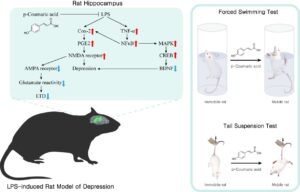
Self Medication: Scenario after COVID-19
Self-medication refers to the practice of individuals treating their own health conditions without consulting a healthcare professional. Self-medication refers to the practice of individuals using medications or treatments without the guidance or prescription of a qualified healthcare professional. It involves obtaining and administering drugs or remedies independently to alleviate symptoms or treat ailments without proper medical advice.
While some over-the-counter medications (such as pain relievers or antacids) are generally safe for short-term use and can help with minor ailments, self-medication can be risky for several reasons:
1. Misdiagnosis: Without proper medical expertise, individuals may misdiagnose their condition. Treating the wrong ailment can lead to delayed appropriate treatment or worsening symptoms.
2. Drug Interactions: Self-medication can lead to dangerous drug interactions. Mixing medications without understanding their potential interactions can result in adverse effects or reduced efficacy.
3. Masking Symptoms: Some medications may provide temporary relief while masking underlying issues. This could delay the identification and treatment of a more serious health problem.
4. Risk of Allergies or Side Effects: People may not be aware of potential allergic reactions or side effects of certain medications. Without professional guidance, they might inadvertently put themselves at risk.
5. Antibiotic Resistance: Inappropriate use of antibiotics without a prescription or completing the full course can contribute to antibiotic resistance, making infections harder to treat in the future.
Benefits of self medication
Self-medication, when done responsibly and under certain circumstances, can offer a few potential benefits. However, it’s crucial to note that these benefits are limited and should be approached cautiously. Here are some potential advantages:
1. Convenience: Self-medication can be convenient for minor health issues. Over-the-counter medications are readily available without the need for a doctor’s prescription for common ailments like headaches, mild pain, allergies, or indigestion.
2. Immediate Relief: For known, non-severe conditions, self-medication with over-the-counter remedies can provide immediate relief from symptoms without the need for a doctor’s appointment.
3. Cost-Effective: Over-the-counter medications are often less expensive compared to prescription drugs. This can be advantageous for individuals seeking relief for minor issues without incurring high healthcare costs.
4. Promoting Self-Management: For individuals managing chronic conditions under the guidance of a healthcare professional, self-medication might involve taking prescribed medications according to a set schedule without needing immediate consultation for every dose.
5. Emergency Situations: In some cases where immediate access to medical assistance is not available, having basic knowledge and access to certain medications (like painkillers, antihistamines, or first-aid treatments) can be helpful temporarily until professional medical help is accessible.
However, it’s important to emphasize the risks associated with self-medication and the potential drawbacks that outweigh these benefits:
• Misdiagnosis: Self-diagnosing can lead to inaccurate identification of the health problem, resulting in improper treatment and potentially worsening the condition.
• Drug Interactions: Without professional guidance, there’s a risk of unknowingly combining medications that can have adverse interactions or side effects.
• Delay in Proper Treatment: Masking symptoms with self-medication might delay the identification and treatment of underlying health issues that require professional assessment.
• Antibiotic Resistance: Misuse of antibiotics through self-medication contributes to antibiotic resistance, rendering these drugs less effective when truly needed.
• Risk of Allergic Reactions or Side Effects: Without a healthcare professional’s oversight, individuals might not be aware of potential allergies or side effects of medications they’re taking.
In conclusion, while self-medication may offer convenience for minor ailments, it should be approached cautiously. Seeking professional medical advice and guidance is crucial for accurate diagnosis, appropriate treatment, and overall health safety.
If someone feels unwell or experiences persistent symptoms, it’s crucial to seek advice from a healthcare professional rather than resorting to self-medication. A qualified healthcare provider can provide an accurate diagnosis, prescribe appropriate medications, and offer guidance tailored to an individual’s health condition, medical history, and specific needs.
Self-care practices like maintaining a healthy lifestyle, eating a balanced diet, exercising regularly, managing stress, and getting adequate rest are important. However, self-medication with prescription drugs or treating undiagnosed conditions without professional guidance can have serious health implications and should be avoided.
While it may seem convenient, self-medication can be risky, especially after experiencing COVID-19, due to various factors:
1. Post-COVID complications: After recovering from COVID-19, individuals might experience lingering symptoms or complications that require specific medical attention. Self-medication may mask symptoms or exacerbate underlying issues.
2. Weakened immune system: COVID-19 can weaken the immune system, making individuals more susceptible to infections or other health problems. Self-medication without proper guidance may interfere with the body’s ability to recover.
3. Antibiotic misuse: COVID-19 is caused by a virus, and antibiotics are ineffective against viruses. However, some individuals may self-medicate with antibiotics, leading to antibiotic resistance and other health complications.
4. Mental health challenges: Post-COVID mental health issues like anxiety, depression, or post-traumatic stress disorder (PTSD) might surface. Self-medicating for these conditions without professional guidance could be harmful.
5. Unknown drug interactions: Some individuals might be on multiple medications post-COVID to manage symptoms or complications. Self-medicating without understanding potential drug interactions can be dangerous.
Instead of self-medication, individuals should:
1. Consult healthcare professionals: Seek guidance from doctors or pharmacists who can provide tailored advice based on individual health conditions and history.
2. Follow prescribed treatments: Adhere strictly to prescribed medications and treatment plans post-COVID.
3. Monitor symptoms: Keep track of any new or worsening symptoms and report them promptly to healthcare providers.
4. Prioritize mental health: Seek professional help if experiencing mental health challenges and explore therapy or counseling options.
5. Maintain a healthy lifestyle: Focus on a balanced diet, regular exercise, adequate sleep, and stress management to support recovery.
Is Self Medication Useful in COVID-19
It’s essential to understand that self-medication, especially after experiencing a significant health issue like COVID-19, can pose serious risks. Seeking professional medical advice and following prescribed treatments are crucial for a safe and effective recovery.
Self-medication for COVID-19 is strongly discouraged. COVID-19 is a complex viral illness with a wide range of symptoms and potential complications. Self-medicating without proper medical guidance or a confirmed diagnosis can be dangerous and ineffective. Here’s why:
1. Lack of Specific Treatment: As of my last knowledge update in January 2022, there was no specific medication recommended for self-treatment of COVID-19. The treatment for COVID-19 requires a proper diagnosis, which can only be done by a healthcare professional.
2. Misdiagnosis and Delayed Treatment: COVID-19 symptoms can vary widely and overlap with other illnesses. Attempting to self-diagnose without proper testing can result in misdiagnosis and delay in appropriate treatment, allowing the virus to progress unchecked.
3. Potential for Harmful Medication: Some individuals might resort to unproven remedies or inappropriate medications out of fear or misinformation. This can lead to adverse reactions, drug interactions, or worsening of the illness.
4. Antibiotic Misuse: COVID-19 is caused by a virus, so antibiotics, which are effective against bacterial infections, are not a treatment for the virus. Using antibiotics without a prescription or when not necessary can contribute to antibiotic resistance.
5. Risk of Spreading the Virus: Self-medicating without proper guidance can lead to inadequate isolation measures, potentially increasing the risk of spreading the virus to others.
During the COVID-19 pandemic, it’s crucial to follow public health guidelines, get tested if experiencing symptoms, and seek medical advice from healthcare professionals. Treatments and medications for COVID-19 are prescribed based on individual symptoms, severity, and risk factors, and should only be determined by qualified medical practitioners.
Vaccination, maintaining hygiene practices, wearing masks, practicing social distancing, and following local health guidelines remain the primary strategies to prevent and manage COVID-19. If you suspect you have COVID-19 or have been exposed to the virus, it’s essential to consult a healthcare professional for proper diagnosis and guidance on appropriate medical care and treatment.
Role of Pharmacist in Self medication
Pharmacists play a crucial role in supporting individuals who engage in self-medication practices. Their role is multifaceted and involves several key aspects:
1. Education and Guidance: Pharmacists are highly knowledgeable about medications, their uses, potential side effects, and interactions. They educate patients about over-the-counter medications, their appropriate use, dosages, and potential risks. They provide essential information to help individuals make informed decisions about self-medication.
2. Recommendation of OTC Medications: Pharmacists can recommend suitable over-the-counter (OTC) medications for minor ailments, ensuring they are appropriate for the individual’s health condition, medical history, and potential interactions with other medications.
3. Preventing Misuse and Abuse: Pharmacists help prevent the misuse or abuse of medications by advising patients on proper usage, duration, and dosage. They discourage self-medication for conditions that require professional medical diagnosis and treatment.
4. Screening for Interactions: Pharmacists can identify potential drug interactions when patients are taking multiple medications, helping to avoid adverse reactions or conflicts between different drugs.
5. Referral to Healthcare Professionals: If a patient’s symptoms indicate a more serious condition requiring professional medical attention, pharmacists can advise patients to seek proper evaluation and treatment from healthcare providers.
6. Promotion of Self-Care: Pharmacists promote self-care practices and healthy lifestyle choices. They advise on preventive measures and non-pharmacological interventions to manage minor health issues.
7. Counseling and Support: Pharmacists offer counseling and support to patients seeking advice on various health concerns, including the proper use of medications, adherence to prescribed treatments, and managing side effects.
8. Monitoring Adverse Effects: Pharmacists monitor and assess potential adverse effects of medications, providing guidance on what to do in case of adverse reactions or when to seek further medical attention.
In summary, pharmacists play a pivotal role in ensuring safe and responsible self-medication practices. They offer guidance, education, and support to individuals seeking to manage minor health issues on their own while emphasizing the importance of seeking professional medical care when necessary.
Financial burden due to Self Medication
Self-medication can lead to financial burdens for several reasons:
1. Inappropriate Use of Medications: Self-medicating without proper guidance might lead to unnecessary purchases of medications that might not be suitable for the health condition or symptoms. This can result in buying multiple drugs or remedies that might not address the underlying issue, leading to wasted expenses.
2. Potential for Wrong Diagnosis: Misdiagnosing health conditions or symptoms can lead to buying medications that are not needed or relevant to the actual ailment. This results in spending money on treatments that don’t effectively address the problem.
3. Risk of Adverse Effects: Self-medication without professional advice can lead to adverse reactions or side effects, which might necessitate additional medical care or interventions. Treating these complications might lead to increased healthcare costs.
4. Antibiotic Resistance: Inappropriate use of antibiotics due to self-medication can contribute to antibiotic resistance. This may result in more severe infections requiring stronger, more expensive medications or treatments in the future.
5. Delay in Proper Treatment: Relying on self-medication may delay seeking professional medical help for conditions that require immediate attention. This delay can worsen the health issue, leading to more extensive treatments and higher costs.
6. Healthcare Expenses: If self-medication results in the aggravation of symptoms or the development of complications, individuals might incur higher medical expenses seeking professional care to manage these issues.
To minimize the financial burden associated with self-medication:
• Seek Professional Advice: Consult healthcare professionals for accurate diagnosis and appropriate treatment.
• Follow Prescribed Treatments: Adhere strictly to prescribed medications and treatment plans to avoid additional costs due to ineffective self-treatment.
• Avoid Unnecessary Purchases: Refrain from buying unnecessary medications or remedies without proper guidance.
• Be Aware of Potential Risks: Educate yourself about the risks and limitations of self-medication to make informed decisions.
Ultimately, while self-medication might seem cost-effective initially, it can lead to increased expenses in the long run if not approached responsibly. Seeking professional medical advice is crucial to ensure effective and appropriate treatment, thus potentially reducing healthcare costs in the future.
Avoiding self-medication is strongly recommended due to several reasons:
1. Misdiagnosis: Self-diagnosis is often inaccurate. Without professional expertise and proper evaluation, it’s easy to misinterpret symptoms, leading to incorrect treatments that might worsen the condition.
2. Risk of Complications: Taking inappropriate medication or an incorrect dosage can lead to adverse effects or exacerbate underlying health issues. Some medications might mask symptoms, delaying the identification of serious conditions.
3. Drug Interactions: Mixing medications without proper knowledge of potential interactions can lead to harmful side effects or reduced effectiveness of the drugs.
4. Antibiotic Resistance: Improper use of antibiotics through self-medication contributes to antibiotic resistance, making infections harder to treat in the future.
5. Delay in Seeking Proper Treatment: Relying on self-medication might delay seeking professional medical help, resulting in worsening health conditions that require more extensive and costly treatments.
6. Legal and Ethical Considerations: Some medications are regulated substances, and their misuse can lead to legal repercussions. Additionally, ethical considerations involve the responsible use of medications and seeking appropriate medical advice.
7. Complexity of Health Conditions: Many health conditions require a thorough examination and diagnosis by healthcare professionals. Attempting to self-treat complex or chronic conditions may lead to inadequate management and potential harm.
8. Unavailability of Certain Treatments: Some medications require a prescription due to their potency or potential for misuse. Self-medication may lead to individuals trying to access medications that are not suitable or safe without proper oversight.
While self-care for minor ailments using over-the-counter medications might be acceptable in certain circumstances, it’s essential to seek professional medical advice for any persistent or severe symptoms. Consulting healthcare professionals ensures accurate diagnosis, appropriate treatment, and guidance tailored to an individual’s health condition, thereby reducing the risks associated with self-medication.

Dr. Amit Lather
Professor, GIP Geeta University
Related Posts

To Evaluate Antidepressant Effect of Indomethacin in Mice with IFN Alpha-Induced Depression
To Evaluate Antidepressant Effect of Indomethacin in Mice with IFN Alpha-Induced Depression Introduction The current work used an IFN-α-induced depression model in albino mice to

The Power of Edge Computing and How It Will Revolutionize the Digital Landscape
The Power of Edge Computing and How It Will Revolutionize the Digital Landscape The notion of edge computing has arisen as a transformational force in

Career Options: Job Opportunities, Courses, Salary – Geeta University
A career as a corporate lawyer is considered one of the top positions in a private company or public sector organization. In Western parts of


